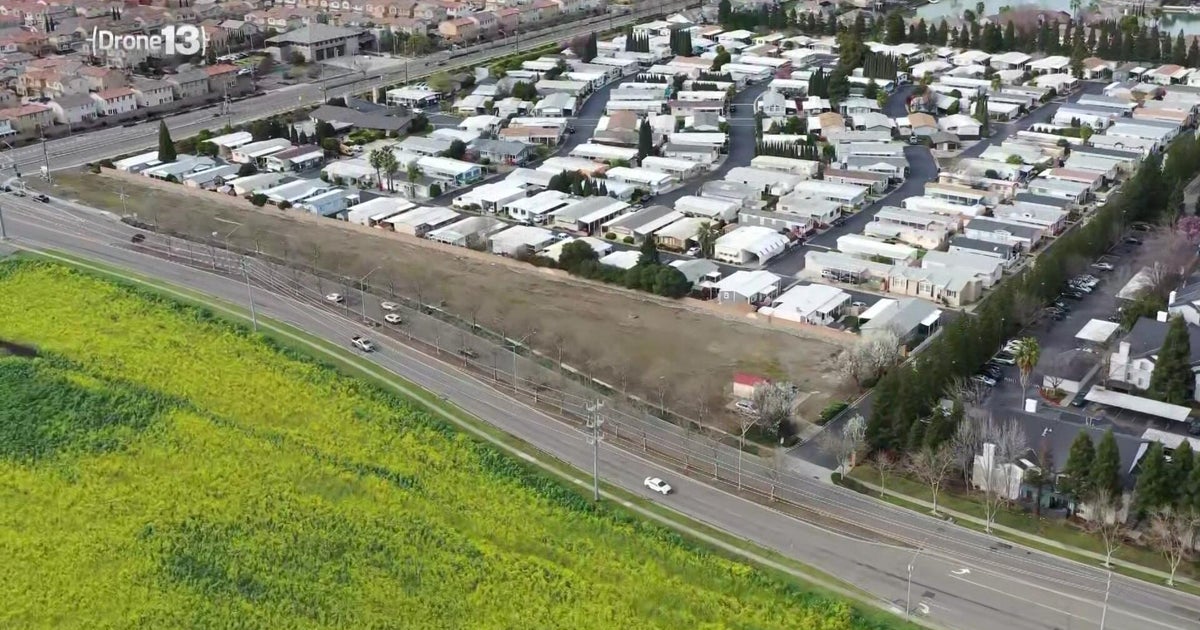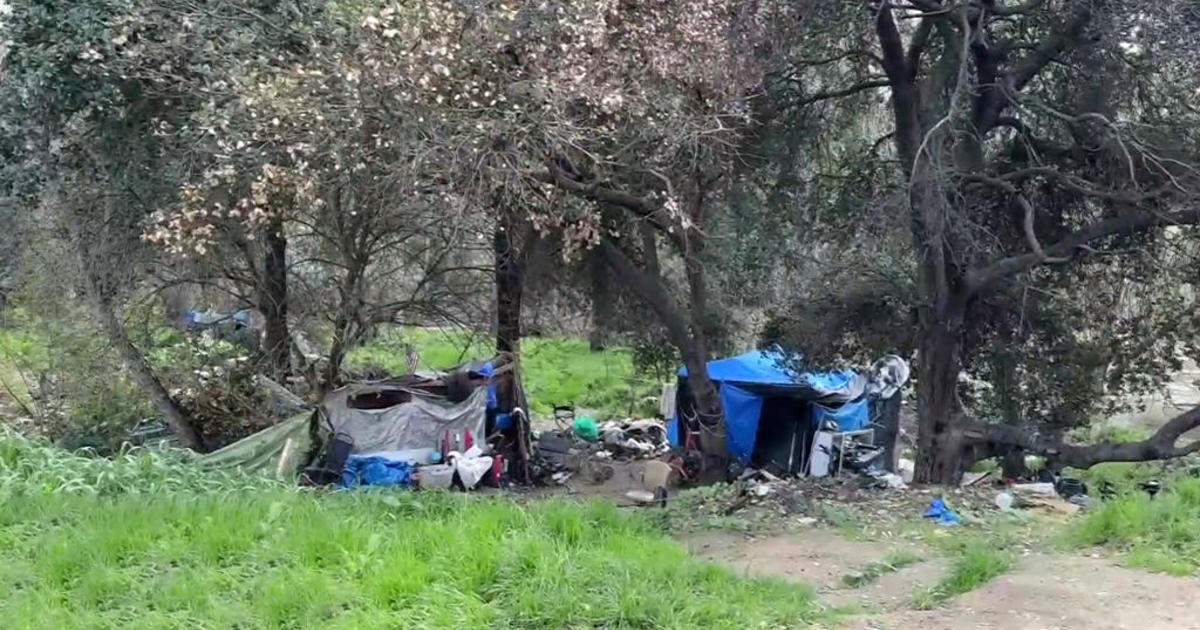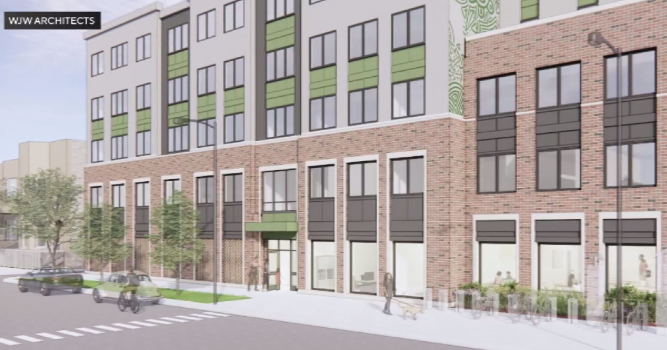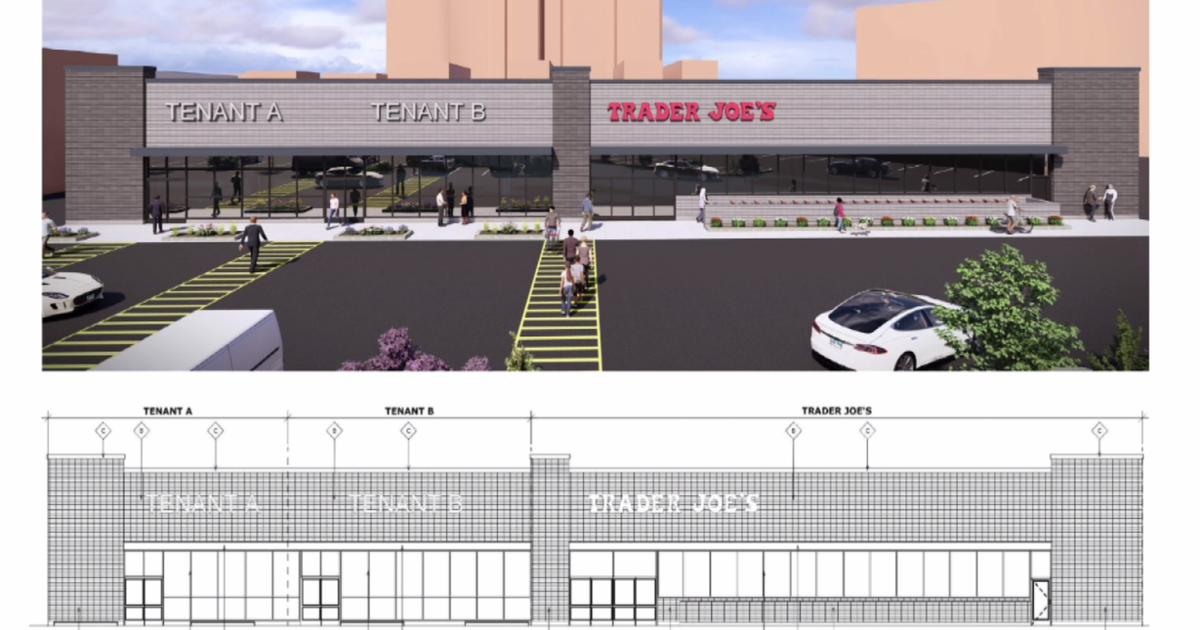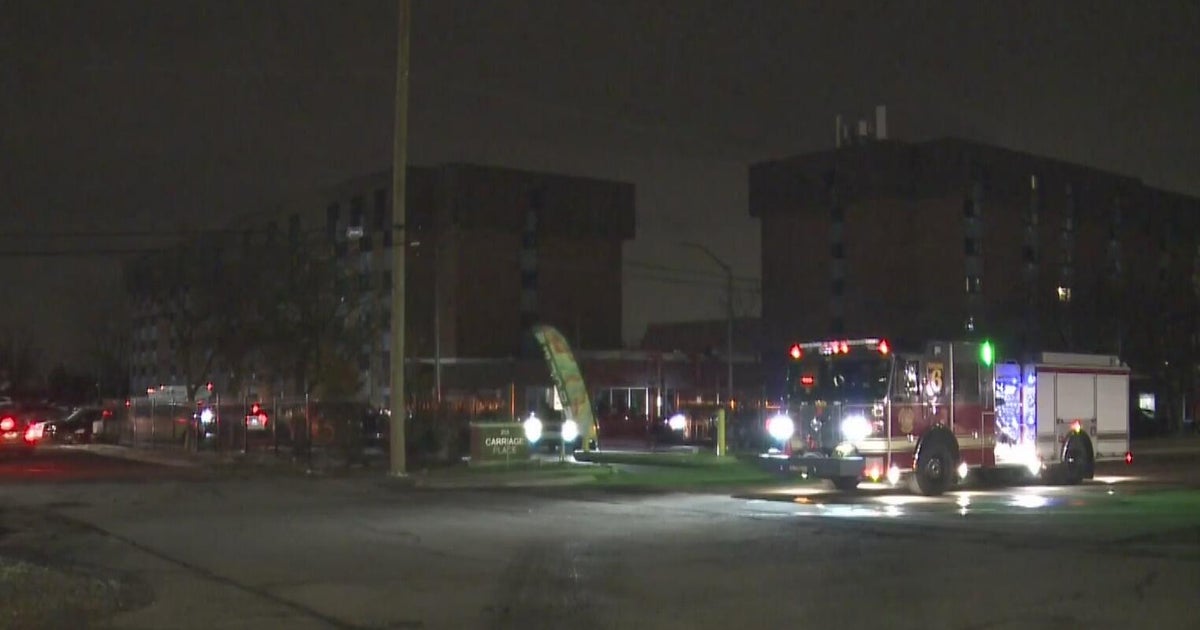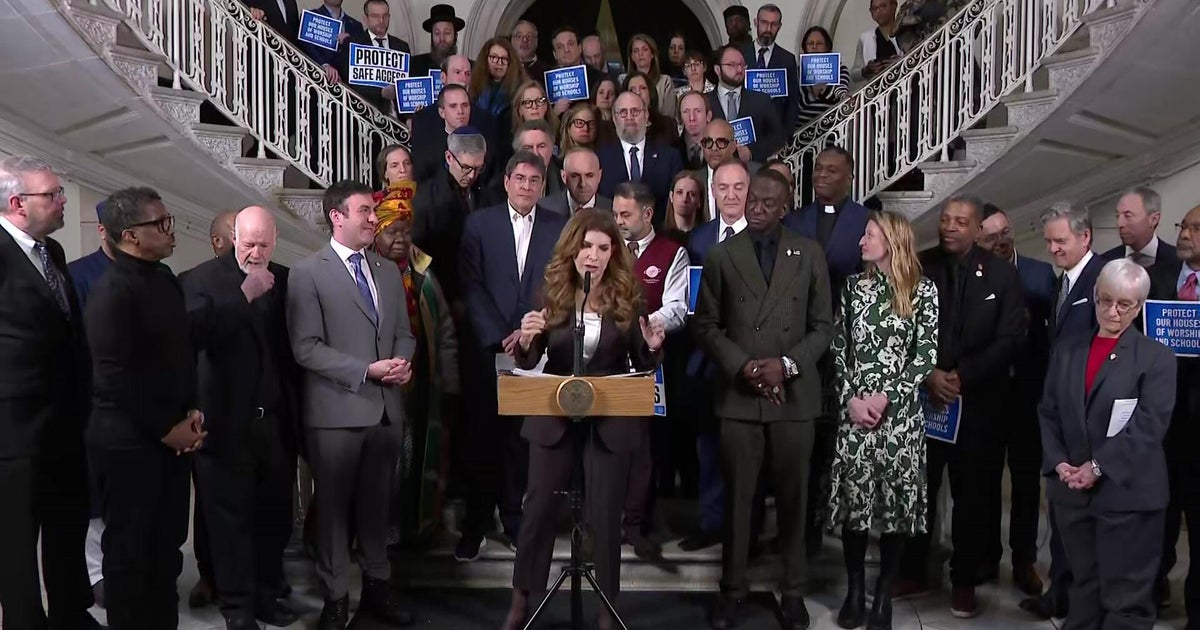City to purchase former Marine Corps facility on NW Side to use as migrant shelter
CHICAGO (CBS) -- The City Council on Thursday approved a plan to transform a vacant North Park building complex once used by the U.S. Marine Corps into a temporary shelter for more than 500 migrants.
Aldermen voted to use $1.5 million in tax increment financing to buy a 10.7-acre property at 3034 W. Foster Av., along the North Branch of the Chicago RIver, from the Metropolitan Water Reclamation District.
The property was previously leased to the U.S. Navy, and then subleased to the U.S. Marine Corps for a reserve training center, but the Marines have terminated their lease at the site, which now sits vacant.
Ald. Samantha Nugent (39th) said after the building became vacant, it became a large homeless encampment, and became a safety risk from fires, drug use, and unsanitary conditions. Its proximity to North Side College Prep High School, the Chicago River, and nearby parks added to neighbors' concerns about the site, and the city has since worked to take down the homeless encampment and offer services to the people who had been living there.
Once the city makes repairs to the building's heating and air conditioning systems, the city plans to house up to about 550 migrants there as soon as next month.
Nugent said the site has "great potential to be an asset for our community" both as a temporary shelter for migrants, and after it is no longer needed for that purpose.
"In the short-term, the building on the property can help address the humanitarian crisis the city is facing, and get migrant families out of police station lobbies and into a more appropriate setting. In the long-term, potential uses for this property include potential use for Park District or an early childhood learning facility, which I would be very supportive of," she said.
City officials have said more than 13,500 migrants have arrived in Chicago from Texas since August 2022, with more than 6,800 living in 18 temporary shelters and another 2,000 living in police stations – as well as in the parking lots and on sidewalks outside the stations – as of earlier this month.
Ald. Leni Manaa-Hoppenworth applauded Nugent and Mayor Brandon Johnson for working to acquire the site in an ongoing effort to relieve the stress that has been placed on Chicago Police Department stations that have become temporary shelters for migrants since Texas Gov. Greg Abbott began sending migrants to various "sanctuary cities" last year in protest of the Biden administration's immigration policies.
Manaa-Hoppenworth said, while she is grateful the city has been allowing migrants to stay inside police stations until they can find more suitable shelters, she said it's not a long-term solution to the city's migrant crisis.
"This is a terrible way to expect people to live. So thank you so much for doing this work. It's not enough. We have to do more, and so I just wanted to express my appreciation for all of the work that you're doing. And, for my colleagues, for also stepping up to do the work to find places for our new arrivals to stay while we find a pathway towards permanent residency here, and sustainable livelihoods," she said.
Johnson has said since taking office in May that moving migrants out of police stations is a "top priority," but so far he has been unable to accomplish that goal as the ongoing influx of migrants has outpaced the city's ability to set up temporary shelters.
"This is not sustainable, and it's not suitable for shelters," Johnson said after Thursday's council meeting.
Johnson said the plan to set up so-called "basecamps" using winterized military-grade tents is part of a strategic plan to get migrants out of police stations before winter weather sets in.
The mayor has proposed setting up winterized tents for asylum seekers at several locations.
"We must and we will replace police stations with basecamps before inclement weather, and as new arrivals continue to arrive. We're going to improve safety and shelter operations with a comprehensive community plan at every single shelter – to ensure security in and outside of the shelter, to make sure that we have the proper staff, and again to make sure that the surrounding community is supported," Johnson said.
One possible location officials mentioned as a potential migrant tent basecamp is a parking lot across the street from Shelton Heights Church near 115th and Halsted.
That plan received mixed reviews at a community meeting Wednesday evening in Roseland, as neighbors expressed concerns that the community is already in a crisis and adding migrants into their neighborhood would make things worse.
Meantime, the City Council on Thursday also voted to accept $33 million in federal funding to help cover previous and future costs of addressing the needs of migrants.
Ald. Raymond Lopez (15th), one of only four alderpersons who voted against accepting the funding, said the City Council needs to take more time to discuss exactly what the city is going to do on a long-term basis to address the migrant crisis.
He also said the Johnson administration hasn't given enough answers about exactly where that money is going to go, noting some of it is going to be used to cover costs the city incurred between June and August.
"We have no idea, no say, no oversight over where that money went. Did it serve its purpose?" he said. "You could wrap it in bacon, but if it's a turd, it's still going to taste like…"
However, Ald. Jason Ervin (28th), who chairs the City Council Budget Committee, said it would be a mistake to turn down the federal funding.
"These are dollars that we have asked for from the federal government to deal with the situation that we have in hand, and I think it would be wrong of us not to accept this money, because again these folks are here, and we've got to figure out how we're going to manage this particular situation," he said.

